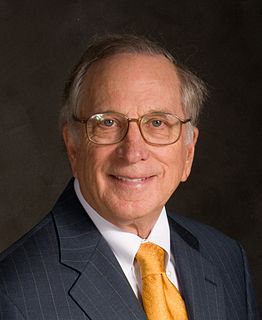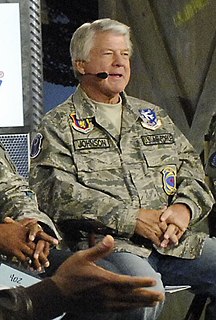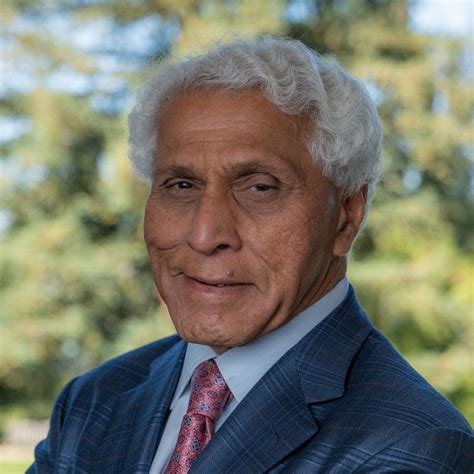A Quote by Brad Feld
Stress on fast growing companies comes from a lot of different places. The one that is often the largest, and creates the most second-order issues, is the composition of the leadership team. More specifically, it's specific people on the leadership who don't have the scale experience their role requires at a particular moment in time.
Related Quotes
As women's leadership qualities come to play a more dominant role in the public sphere, their particular aptitudes for long-term negotiating, analytic listening, and creating an ambiance in which people work with zest and spirit will help reconcile the split between the ideals of being efficient and being humane. This integration of female values is already producing a more collaborative kind of leadership, and changing the very ideal of what strong leadership actually is.
We never used to blink at taking a leadership role in the world. And we understood leadership often required something other than drones and bombs. We accepted global leadership not just for humanitarian reasons, but also because it was in our own best interest. We knew we couldn't isolate ourselves from trouble. There was no place to hide.
The steady progress made by North Korea on its nuclear and missile programs is deeply concerning. The US cannot solve this problem alone. However, in order to take steps that could fundamentally affect the North Korean leadership and its decision-making, we need to work even more closely with our allies in the region who feel this threat acutely. I would urge China, in particular, to intensify its leadership role in helping to solve this crisis.
I often ask myself: "What would Theodore Roosevelt do?" One can never know, of course. The ultimate contribution of consequential leaders is often their capacity to reframe issues in novel ways. That said, his leadership engaged, at a foundational level, whether the American "national character" would accept decline and mediocrity, or would go all-in for leadership and excellence. Amid the myriad of otherwise disconnected issues before us, that choice is emerging yet again.
I think as far as any kind of pressure on a football team or on an individual in professional sports really depends not only on that individual but the leadership they have on the team and the leadership they have on the coaching staff. A lot of times, they can divert some of those pressures off of the individual and off of the team.

































